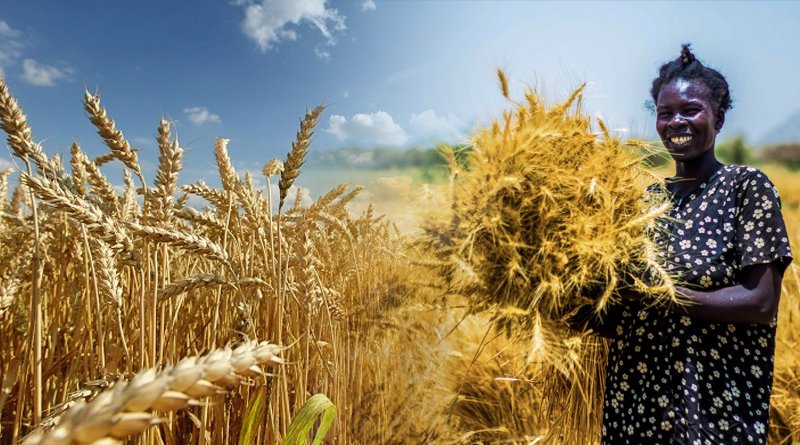The Wheat Farmers Association of Nigeria has pledged to cultivate over 350,000 hectares in order to produce at least 1M metric tonnes during the 2022–2023 farming season.

The Wheat Farmers Association of Nigeria (WFAN) has pledged to cultivate over 350,000 hectares in order to produce at least one million metric tonnes during the 2022–2023 farming season.
Salim Saleh Mohammed, the association’s former national president, stated in his final interview a few days before his death on December 25, 2022, that this was possible with the support and encouragement of the Central Bank of Nigeria’s (CBN) Anchor Borrowers Programme, the Federal Ministry of Agriculture and Rural Development, and other interested private partners.
He had stated that the association anticipated receiving significant and timely attention in order to produce enough to mitigate the disaster and the growing population.
He also stated that massive food production and technical and financial assistance to increase production and productivity are critical to overcoming the global food crisis and rising prices of essential commodities, particularly wheat farming.
He also claimed that this would halt internal and external supply shortages and avert the expected increase in prices of essential daily necessities such as bread, indomie, and snacks that become household consumption.
He also stated that Nigeria has the potential to be a breadbasket for Africa, emphasising the importance of collaboration among the country’s agricultural stakeholders.
He emphasised the importance of stakeholders collaborating with the government to achieve much-needed synergy in identifying challenges and developing strategies for improvement.
Dr. Oluwashina Olabanji, former Executive Director of the Lake Chad Research Institute (LCRI), stated that the Federal Ministry of Agriculture and Rural Development procured and distributed inputs, seeds (300 Mt), agrochemicals, and farm equipment to wheat farmers in Nigeria to aid in accelerated wheat production.
According to him, the Flour Milling Association of Nigeria has planted 4000 ha for seed and grain production in some of Nigeria’s wheat-growing states.
The African Development Bank‘s (AfDB) budget support for wheat self-sufficiency in Nigeria began during the season with the promotion of local seed production by Agricultural Research Institutes and seed companies to reduce seed importation to the country and to enable the country to have quality and quantity wheat seeds to cultivate the proposed 250,000 ha for the 2023/ 2024 cropping season, according to Olabanji.
“If the government’s commitment to agriculture is sustained, no doubt Nigeria will be food secure in the not-too-distant future, despite global food crises,” he said. Further, he stated that even with the CBN and the African Development Bank (AfDB) intervening in wheat production, it will take 10 years of perseverance to achieve wheat self-sufficiency.
He also stated that the various initiatives to boost wheat production are bearing fruit. Wheat is primarily grown in the Nigerian states of Borno, Bauchi, Yobe, Kano, Jigawa, and Zamfara.
